What do you pay attention to in making Tanghuang Manor Pacamara Coffee? what is the reason for making acid in Pacamara hand?
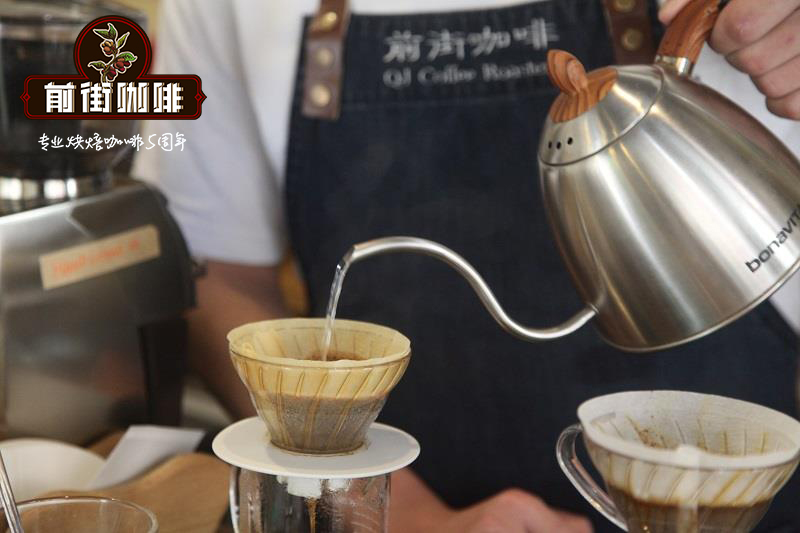
Professional coffee knowledge exchange more coffee bean information please follow the coffee workshop (Wechat official account cafe_style)
Don Juan Manor Pacamara Coffee
National Family: Panama
Product name: don Juan Manor Pacamara
Producing area: Bogut
Grade: SHB
Treatment: washing
Sea pull: 1650 meters
Product type: Pacamara
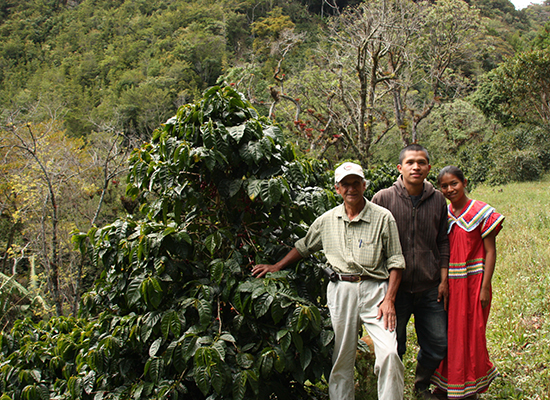
Introduction to Don Juan Manor story information:
Don Juan Manor Panama Don Julian in Panama
Many years ago, most buyers in the boutique coffee industry shunned large-grain coffee such as Maragogype and Pacamara. Large-grain coffee grown in low and middle elevations usually showed less pleasant vegetable or woody flavors. At that time, most coffee farmers had not yet tried to grow in high altitude areas. It was not until Incht Manor won the championship of Cup of Excellence with Pacamara variety many times that boutique coffee lovers slowly realized that the original Pacamara produced at high altitude had such a rich and varied flavor.
When I visited Panama a few years ago, I happened to find the Pacamara variety that had just been produced by Don Juan. I was very impressed by the estate at that time, and exchanged a lot of information about the Pacamara variety with the owner Mrs Burneskis. At present, we have the following consensus on how to produce Pacamara with excellent flavor. The elevation of the manor is 2. Strict fertilization control is particularly important for Pacamara varieties. Only the most ripe Pacamara fruits are harvested during the coffee harvest period, but not as long as there is a little immature color.
The time went back to around March 2013, when the coffee was harvested in the Boqui specialty area. At that time, I visited the manor with the owner and understood the whole operation process of the garden. As soon as I arrived at the manor, I could clearly feel the manor owner's attention to the ecological maintenance of the whole garden. A large number of original shading trees and many other native tree species were preserved in the manor. The owner of the manor explained that although the retention of many native tree species limits the annual output of the manor, it can improve the quality and flavor of the manor. Coffee trees need to be symbiotic with the surrounding environment. If you cut down these trees, although it can increase the yield, it will greatly harm the quality of coffee, so many conservation animals and plants can even be found in the manor. At the same time, we also talked to the manor owners about the care for local farmers, and this year, the manor owners officially began to build exclusive dormitories for farmers to provide them with better living quality and achieve the business philosophy of sustainable management by improving the quality of life of farmers.
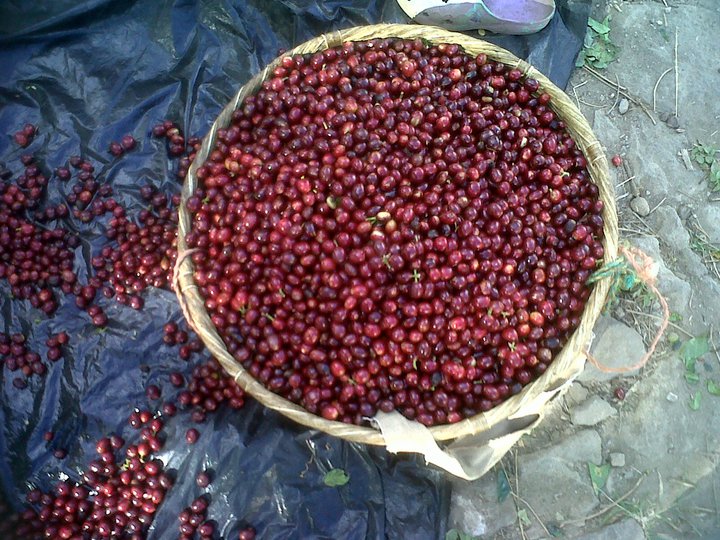
Introduction of Pacamara coffee bean varieties:
Pacamara, a new hybrid born in El Salvador in 1958, is a cross between bourbon Pacas (Pacas) and iron card elephant bean (Maragogype). It has the advantages of both, but it is better than blue! Pure and soft, mellow and smooth, acidity lively, full flavor, long finish, amazing.
Pacamara stunned people on COE in El Salvador in 2005. In the top ten, Pakamara bean seed occupies the second, fifth, sixth and seventh place!
In 2007, the Pacamara breed won the COE championships of Guatemala and El Salvador. Since then, Pakamara has been out of control on the road of winning the award, has occupied the forefront of the list of major events for a long time, and is known as a rookie variety as famous as Rosa in the world.
On COE in Guatemala alone, Pakamara won the title in seven of those 10 years in 2008 / 2017.
Due to the unnatural performance of Pacamara on the field, in 2017, the BOP (Best of Panama) international competition group decided to compete as a separate group.
However, Rao still has some disadvantages: Pacamara has high requirements for soil and water, climate, environment and altitude, and its yield is not high and its resistance to leaf rust is low, so its planting popularization rate is not high.
Today, although Pacamara is no longer particularly rare, it is still not a very common bean in the market. In particular, Pakamara is best produced in Guatemala and El Salvador, with a large number of international pursuers, so it is even more rare for those who can reach the country.
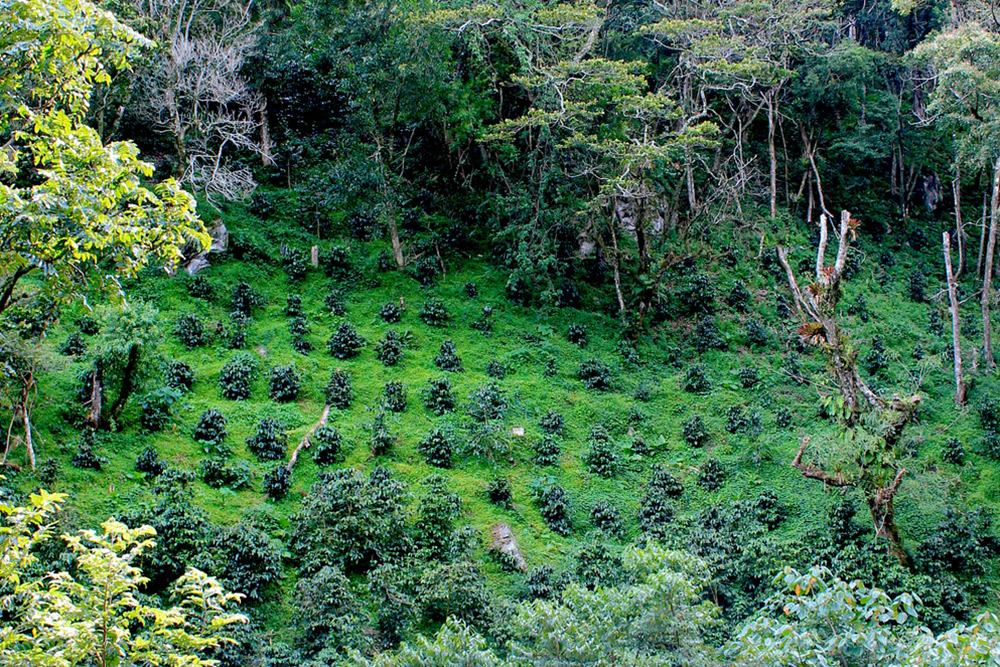
Introduction to the treatment method:
Sun exposure (Natural Process)
Tanning is the oldest and most primitive treatment of coffee beans. The method of treatment is to first pour the harvested coffee fruit into a large trough, the ripe and full fruit will sink to the bottom of the water, while the underdeveloped or overripe fruit will surface. After these floating beans are shaved, the healthy coffee fruits are placed on the terrace to be directly exposed to the sun to dry, and the moisture is dried from 60% to 12%. Finally, the hard peel (Outer Skin) and pulp (Pulp) are removed by a sheller, and the whole treatment process of raw beans (Bean) is completed.
(↑ selects coffee fruits) (↑ drying in the open air)
Sun treatment can increase the flavor of berries and tropical fruits with mild acidity, but traditional sun treatment can sometimes produce negative flavors, such as soil, over-fermentation and so on.
Today, tanning is becoming popular again, even as one of the most important treatments for competition-grade coffee beans, and the change comes from the use of improved African viaducts. In addition to avoiding the moisture, animal manure and land smell on the ground, the elevated shed also keeps the fruit in a good air convection environment, making the drying effect more uniform, and farmers will turn it regularly to make the coffee beans gently absorb the sweetness of the pulp and make the flavor fuller and fuller.
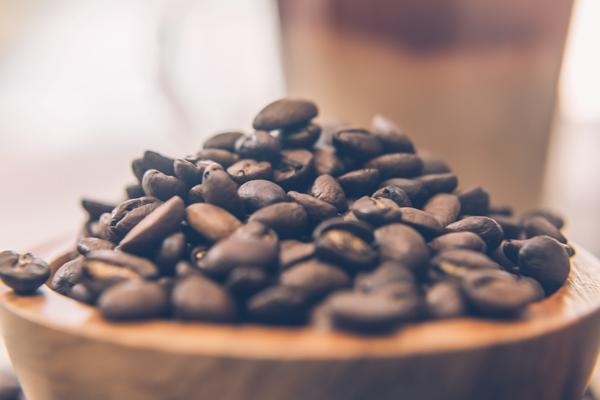
Baking suggestions / Analysis:
The variety of this coffee is giant bean [Pacamara] with relatively large granules and high density, and the newly produced kidney beans have high moisture content. The heat absorption is relatively slow in the baking process, and the Mena reaction process is also relatively fast. The yellowing point is about 5 minutes. In the first baking, you can try to lower the bean temperature slightly, for example, the bean temperature is 200 degrees, and the firepower is also relatively increased. In the baking process, gradually adjust the firepower as needed: adjust the firepower after the beans enter the yellowing point to prolong the dehydration time, so that the giant beans can be fully dehydrated. Before an explosion after dehydration, you can properly maintain medium heat or slightly increase the firepower, accelerate the Mena reaction time, and ensure the pressure before the explosion; the precursor of an explosion needs to adjust the firepower properly to avoid bean watch burns. Under this method of operation, the dehydration time of coffee is relatively prolonged, with a heating rate of 6-8 degrees every 30 seconds, but it can also maintain a normal explosion between 8 and a half minutes and 9 and a half minutes, preserving more flower and fruit aroma and keeping clean and bright acidity. It is usually recommended to drop beans between the dense back section of an explosion and the end of an explosion, and bake about moderately.
Cup test flavor description:
Flavor description: passion fruit, dried mango, strawberry, wine, fruit vinegar, rich floral aroma, sucrose, cherry, lingering finish
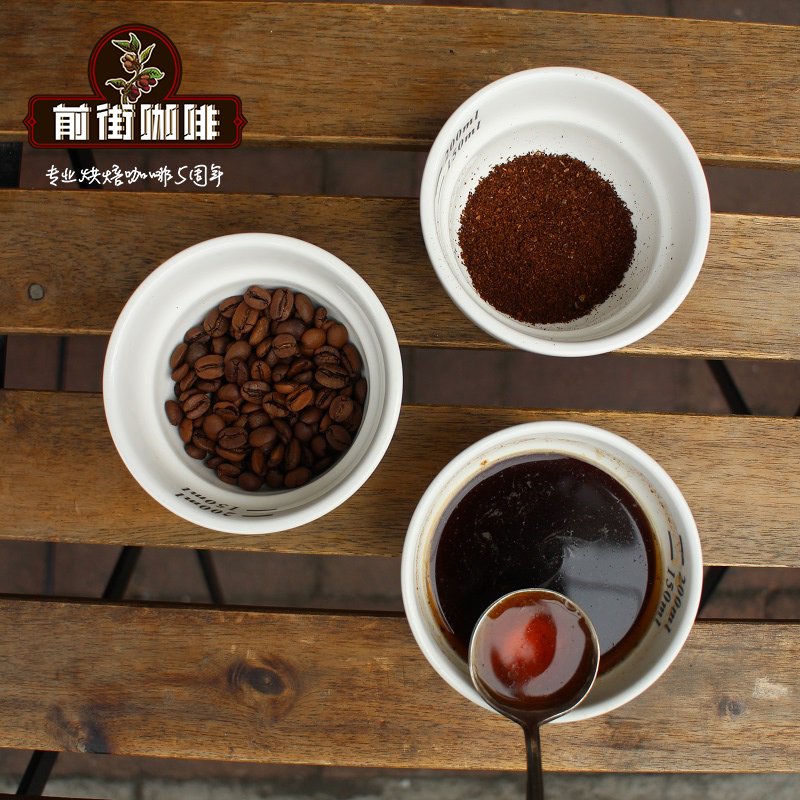
Cooking analysis:
Today, we introduce the common method of making Pacamara coffee in front street: V60 three-stage water injection method.
Extract by stages, pour all the cooking water into three stages.
Suitable for light, medium and medium roasted coffee beans
Use filter cup V60 cup
Increasing the steaming time or water cut-off times can improve the rich taste of the coffee.
Segmented extraction method of three-stage water injection
Advantages: it is richer than the one-knife flow, and can clarify the flavor of the front, middle and back of the coffee. The method is to increase the amount of water injection each time after steaming, usually when the coffee liquid is about to drop to the surface of the powder layer, and use small, medium and large water flow to do three-stage extraction.
Disadvantages: there will be relatively high requirements for the flow rate and flow rate of water.
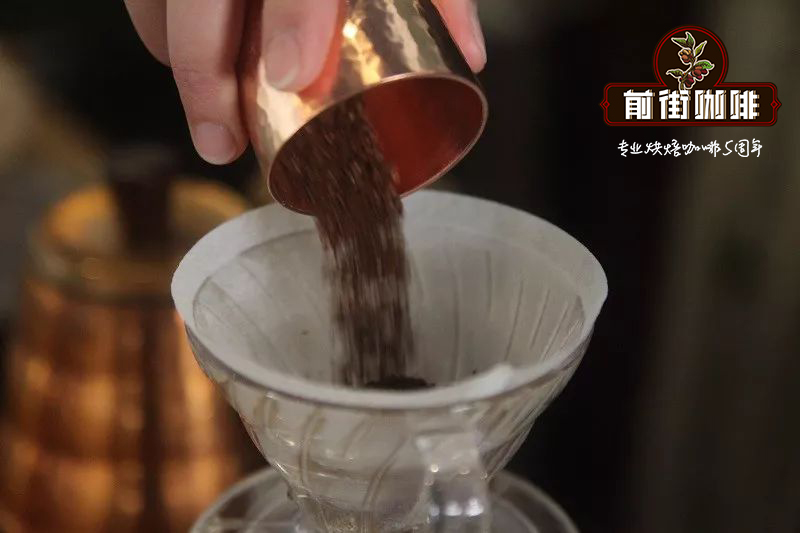
Qianjie [suggestion of Pacamara Coffee hand punching parameters]
Brewing with V60 filter cup can improve the layering of hand flavor and make it richer and cleaner to drink; the bright aroma of Pacamara variety can be fully displayed.
15g powder, water temperature 89-90 degrees, grinding BG 5R (64% pass rate of Chinese standard 20 sieve), water powder ratio close to 1:15-16
Technique: 27g water steaming, steaming time for 30s. The hot water in the hand flushing pot draws a circle clockwise with the center of the filter cup in the middle of the filter cup, starts the time when brewing, injects water to 27g, then stops the injection and waits for 30 seconds to inject water for the first time.
When the first water injection is the same as before, the speed can be slowed down slightly, speed up a little when you go around the outer circle, cut off the water at about 1:15 seconds, and then inject water again when the liquid level drops 1 inch 3. The second water injection is concentrated on the central water injection. The water flow should not rush to the place where the coffee powder is connected with the filter paper, so as not to produce channel effect. Finish the extraction at about 2:05 seconds, and the longer the time is, the longer the extraction can be done. The astringent and rough taste will increase.
Segment: 30-125-230g
END
Important Notice :
前街咖啡 FrontStreet Coffee has moved to new addredd:
FrontStreet Coffee Address: 315,Donghua East Road,GuangZhou
Tel:020 38364473
- Prev
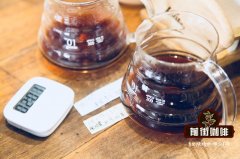
What's the taste of Pacamara hand-brewed coffee in Cloud Manor, Guatemala? is Pacamara suitable for hand-brewing?
Professional coffee knowledge exchange more coffee bean information please follow the coffee workshop (Wechat official account cafe_style) Cloud Manor story introduction: Antigua-ANTIGUA Antigua (Antiqua) producing area itself is one of the eight most famous producing areas in Guatemala, high altitude, unique volcanic soil, shade planting, give Antigua coffee beans a unique flavor. Guatemala horse
- Next
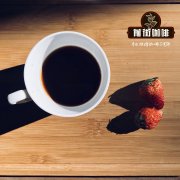
Why doesn't Pacamara hand make coffee in Rose Manor of El Salvador? how to drink Pacamara?
Professional coffee knowledge exchange more coffee bean information please follow the coffee workshop (Wechat official account cafe_style) 2018 El Salvador Rose Manor Pacamara Coffee El Savador Chalatennago Finca Las Rosas Pacamara Honey Origin Region:Chalatennago Manor Estate: rose Manor Finca Las Rosas beans Va
Related
- Detailed explanation of Jadeite planting Land in Panamanian Jadeite Manor introduction to the grading system of Jadeite competitive bidding, Red bid, Green bid and Rose Summer
- Story of Coffee planting in Brenka region of Costa Rica Stonehenge Manor anaerobic heavy honey treatment of flavor mouth
- What's on the barrel of Blue Mountain Coffee beans?
- Can American coffee also pull flowers? How to use hot American style to pull out a good-looking pattern?
- Can you make a cold extract with coffee beans? What is the right proportion for cold-extracted coffee formula?
- Indonesian PWN Gold Mandrine Coffee Origin Features Flavor How to Chong? Mandolin coffee is American.
- A brief introduction to the flavor characteristics of Brazilian yellow bourbon coffee beans
- What is the effect of different water quality on the flavor of cold-extracted coffee? What kind of water is best for brewing coffee?
- Why do you think of Rose Summer whenever you mention Panamanian coffee?
- Introduction to the characteristics of authentic blue mountain coffee bean producing areas? What is the CIB Coffee Authority in Jamaica?

